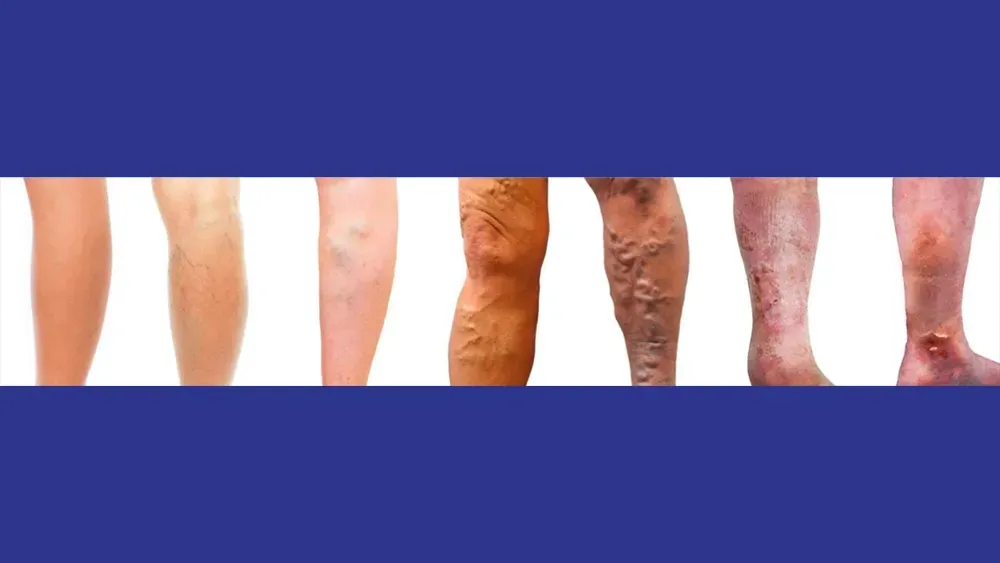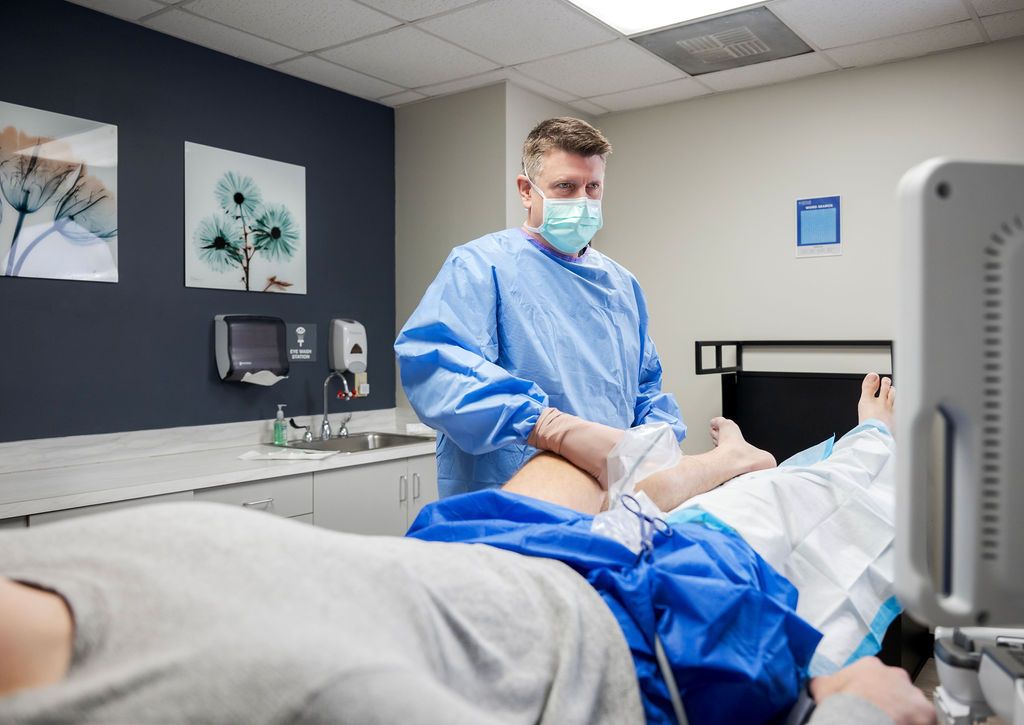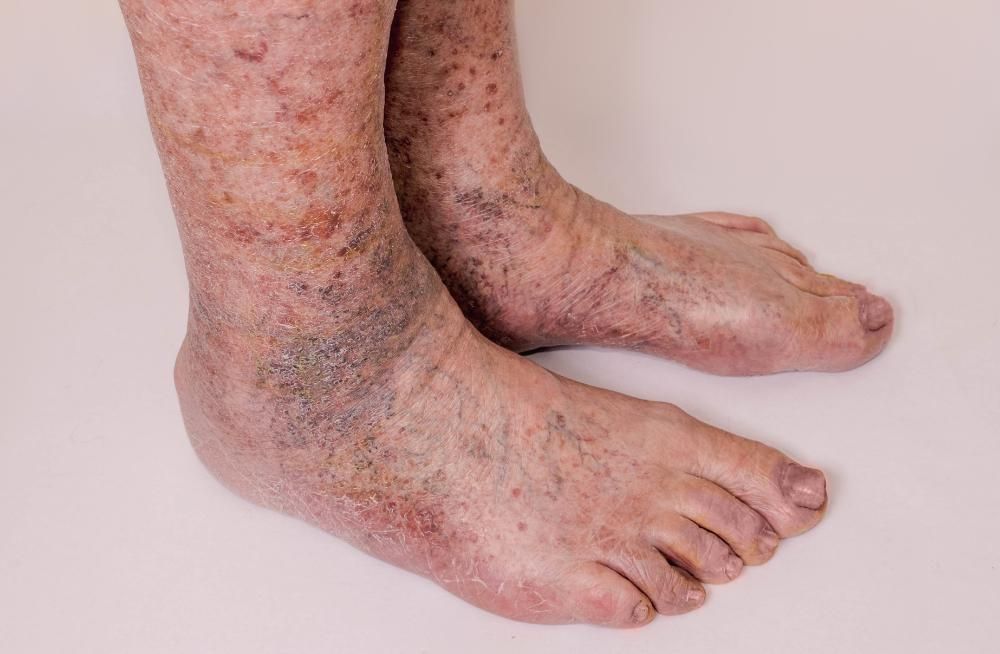Are varicose veins dangerous?
Varicose veins are common. It’s estimated that 20-40 million people in the United States are affected by venous reflux, the primary cause of varicose veins. Many people with varicose veins are aware that the veins on their legs are sticking out or bulging, but are uncertain whether this is a problem that needs to be addressed.
A common question is “are painful varicose veins dangerous?” For the majority of people with varicose veins the answer is “no”, varicose veins are not dangerous. Although varicose veins can cause symptoms of pain, aching, tenderness, and itching these symptoms tend not to be life or limb-threatening. This being said, a small percentage of people with varicose veins will develop complications, some of which can be serious.
BURSTING VEINS
One potential complication of varicose veins is external bleeding, which can occur when bulging veins are bumped against a blunt object (eg. edge of a dishwasher), or punctured with a sharp object (eg. leg shaving). Sometimes bleeding from a varicose vein can occur spontaneously, without any apparent trauma to the area. Spontaneous bleeding commonly occurs when people are in the shower. The hot water causes veins to bulge and dilate, and increased pressure in the vein makes it susceptible to bursting or rupture.
If you sustain bleeding from a varicose vein you should apply pressure over the bleeding site with a finger for at least 5-10 minutes until the bleeding abates. If you sustain bleeding it’s important to seek expedited medical attention, as re-bleeding can occur. The treating doctor may apply a suture or glue to control the bleeding, and in some situations, a pressure bandage may be appropriate. Most patients with bleeding from a varicose vein will benefit from evaluation and treatment of underlying vein conditions to reduce the likelihood of re-bleeding.
BLOOD CLOTS
Another possible complication of varicose veins is blood clots. Most of the time blood clots that develop in the setting of varicose veins are superficial and are not life or limb-threatening. When blood clots occur in a varicose vein the area tends to be firm, red, warm, and tender. These findings are related to tissue inflammation, which is the body's reaction to the superficial blood clot. The medical name for blood clots that occur in the superficial veins is superficial thrombophlebitis, often more simply abbreviated as phlebitis.
A small percentage of people who develop superficial vein blood clots are at risk for clot extension into the deeper veins in the legs (deep vein thrombosis - DVT). Situations where this is more likely to occur are when the superficial clot is close to a connection with the deep veins, and in people who have a tendency towards easy clot formation. The only way to know for sure whether a clot is superficial or deep is to get an ultrasound scan.
ARE VARICOSE VEINS ITCHY?
Varicose veins and spider veins are associated with a condition called stasis dermatitis, which causes dry, itchy skin. If the itching is mild this can be a nuisance problem, but many people will get worsening itchiness, to the point where they are at risk for damaging the skin from repeated or vigorous itching. Typically the skin changes of stasis dermatitis affect the skin just above the ankles.
WHAT CAUSES VARICOSE VEINS?
Varicose veins are commonly caused by an underlying vein condition where the valves in the veins are not functioning correctly. This underlying condition is called venous reflux or venous insufficiency. Venous reflux can cause a variety of symptoms including leg pain, leg heaviness, leg fatigue, leg cramps, leg swelling, leg restlessness, leg discoloration, and in advanced cases skin wounds.
VARICOSE VEINS TREATMENT OPTIONS
Varicose veins can be treated by a variety of procedures. Some of these procedures work indirectly, by reducing the pressure in the varicose veins, and some of the procedures work by directly sealing or remove the varicose veins. Not everyone with varicose veins needs treatment, but if you’re having symptoms or have sustained complications of varicose veins it’s worth getting evaluated to find out your options.
If you're on the fence, about whether to investigate things we offer brief (<15min vein screening consultations) at no charge. We also offer free virtual vein screening consultations, if this is more your style!
Dr. Ford is the best vein specialist in Charlotte. Contact us to schedule your new patient appointment or check out our new-patient consultation FAQ's.
SHARE:




